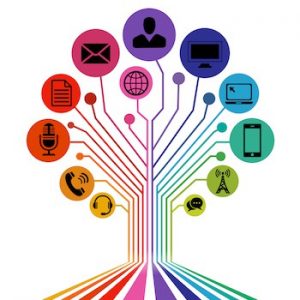The AI Touch: Email Is The Task Most Likely To Be Automated By SMBs
Small businesses may not be automating their accounts receivable and customer-service functions. But they are sure doing so with their email marketing, according to Automation in Small Business, a study by Skynova.
Of the SMB owners polled, 44% have automated their email-marketing campaigns and 27% plan to do so in the future.
In contrast, only 17% have automated accounts receivable, 14% accounts payable and 12% customer management. Just 7% have automated other marketing, and only 17% plan to.
While 60% of owners overall plan to automate at least one function of their business in the near future, 38% believe automation is unattainable.
The respondents say these processes are too complex to automate:
- Customer service—41%
- HR—33%
- Product assembly—29%
- Project management—28%
- Customer management—28%
Also, 37% have automated their social-media marketing and 23% are planning to. Data analysis has been automated by 31%, and 20% will do that going forward. And social media management has been given the AI treatment by 24%, with 19% planning to.
Email, the most AI-driven function, is also rates more highly when it comes to ethics.
Only 9% say email marketing should be performed by a human, based on ethical concerns and 9% for philosophical or mission-based reasons. Other forms of marketing are even further down this list, at 6% and 8%, respectively.
But 56% believe ethical issues require customer service be performed by a human. And 46% say the same due philosophical or mission issues.
In addition, 36% feel customer management should not be automated due to ethical issues, and 29% for philosophical or mission concerns.
Ethics aside, the top reasons for not automating more business functions are:
- Lack of interest—43%
- Too expensive—38%
- Fear of AI making severe mistakes—30%
- Insufficient time to consider it—19%
- Automation products aren’t available—18%
- Difficulty in learning a new system—13%
And the biggest negative impacts of automation? They are seen as:
- Requires excessive technical support—29%
- Difficulty of integrating with existing partners—27%
- Employees or team members resisted change—27%
Presumably, these effects are outweighed by the positive impacts:
- Productivity—69%
- Customer satisfaction—38%
- Profits—34%
- Costs—31%
- Employee satisfaction—25%
Skynova surveyed 288 U.S. business owners with at least one employee. Of these respondents, 58% were men, 41% were women, and 1% identified as nonbinary or noncomforming.
(29)
Report Post






